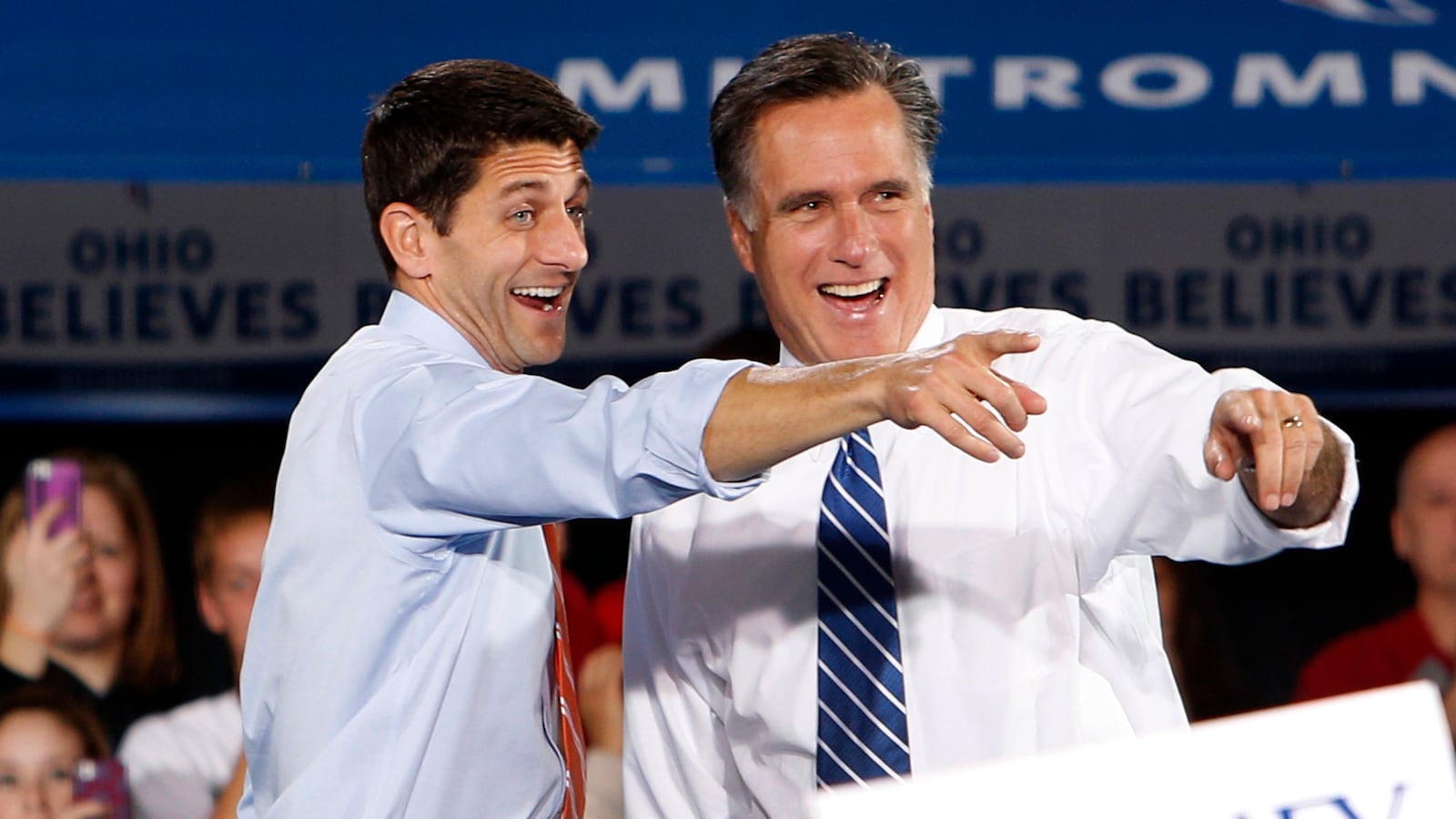As Paul Ryan delivered his speech to the Republican National Convention in August, a phalanx of partisans and pundits lurked on Twitter and in the blogosphere, aggressively fact-checking his every utterance. Ryan offered a rather large, slow-moving target—it was a red-meat campaign speech, after all—and the following day a narrative had developed: While all politicians engage in some level of dishonesty, the Romney-Ryan ticket was preternaturally, if not historically, dishonest.

Indeed, many Mitt Romney detractors insisted that his campaign was uniquely allergic to the truth. MSNBC host Ed Schultz accused Romney of running “the most dishonest campaign we have ever seen by a national figure.” Liberal Princeton professor Kevin Kruse declared that the candidate’s “fundamental disdain for facts is something wholly new.” As Romney took the stage for his concession speech Tuesday, The Nation’s Greg Mitchell offered this parting shot: “Mr. Liar has to tell the truth: 'I lost.'”
Strangely, it was a line of attack cribbed from Republican Newt Gingrich—another politician with a complicated relationship with factual accuracy—who, during the Republican primary fight, slammed Romney as running a “fundamentally dishonest campaign.”
To be sure, it is a bipartisan instinct; one needn’t look hard to find Republicans accusing President Obama of being a profligate liar too. But despite convincing arguments that both candidates were cutting corners with facts, it was the charge against Romney that stuck. New York Times columnist Paul Krugman went so far as to insist that Republicans had dragged us into an epoch of “post-truth politics.”
This is, I’m happy to say, utter nonsense. This perhaps felt like an unprecedentedly dishonest campaign, with the inexorable rise of the fact-checking industry and Jon Stewart upbraiding liars and hypocrites on Comedy Central. But as Buzzfeed editor Ben Smith observed after the post-convention Ryan pile-on, partisans claiming we had reached a historical nadir in political discourse had established something of a “bogus political narrative.”
But even if Romney’s dissembling wasn’t record-setting, there was still enough material to keep Politifact, Factcheck.org, and the Washington Post’s “Fact Checker” busy. Nevertheless, 58 million Americans pulled the lever for him on Tuesday. Why?
When candidates indulge in serial dishonesty, we too often exonerate those who create the habitable climate for political lies: the voter. Indeed, Americans aren’t victims of the supposed “post-truth” era, but gleeful co-conspirators. And unctuous politicians and their surrogates understand that the benefits of lying about your opponent are high (see the wholly dishonest attacks on John Kerry in 2004 by the “Swift Boat Veterans for Truth”), while voters ensure that the risks remain relatively low.
Why do we possess a unique tolerance for political lies? For a researcher or journalist, a reliance on bowdlerized quotes, cherry-picked data, and demonstrable falsehoods—like Mitt Romney’s campaign ad claiming Jeep was moving all its production facilities to China—would result in the loss not only of an individual job, but of an entire vocation. Despite the divisions of combat-ready fact-checkers, opposition researchers, and social-media partisans, candidates nevertheless fear no consequences of lying.
There exists a growing body of scientific evidence suggesting that ideologically committed voters almost encourage dishonesty. A study by Duke University behavioral economist Dan Ariely found that “participants who were planning to vote Democratic indicated that Romney should be held to a fairly high ethical standard [while] Republican participants held a similar standard for Obama.”
In this miasma of misinformation, Americans throw open their arms, embracing their own party’s political deceptions as the best route towards toward policies they think will benefit them. Take a look at the Facebook pages and Twitter feeds of politically engaged friends. You’ll likely come across dozens of links highlighting an egregious political lie, but good luck finding a friend who highlights whoppers from both parties. And even if political lying is unevenly distributed by ideology, as is often claimed, we could expect examples of outrageous dishonesty from their own side, just far fewer.
Because many pundits saw a second Obama term as a particularly high-stakes moment in American political history, the parallel perception has emerged that ours is a particularly dark time for political “truth.” It isn’t. Throughout history, presidential campaigns have been consistently dishonest. But let us be clear who the guilty parties are: the lying politicians and the voters who love them.





